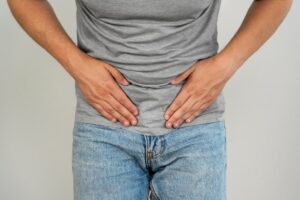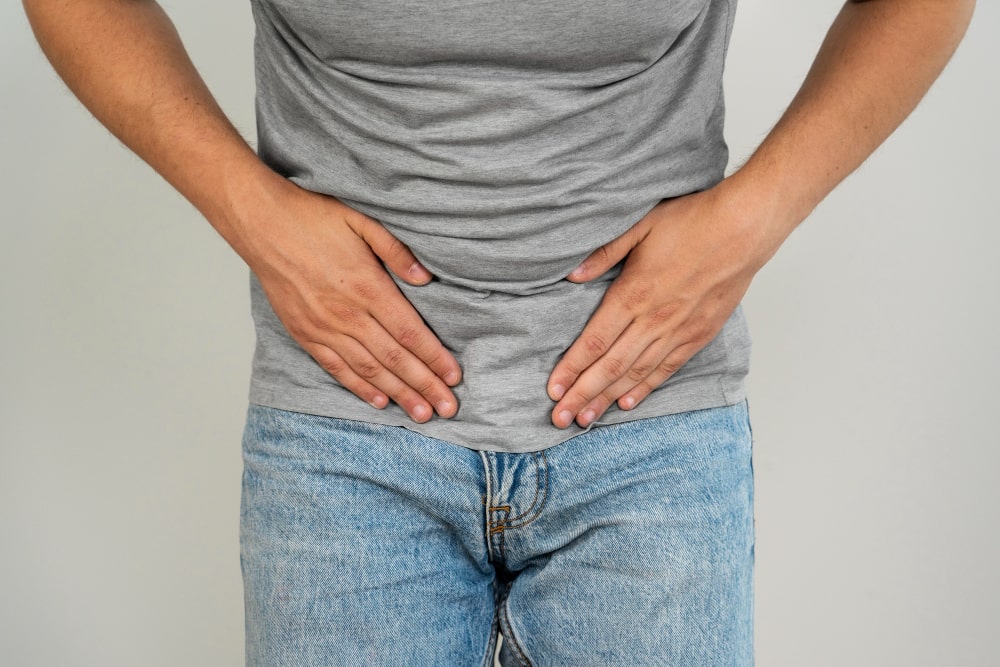
Anal fissures are a common problem among infants and young children, causing pain and discomfort during bowel movements. An anal fissure is a tear in the skin around the anus that is often caused by passing hard or large stools.
While this condition can affect people of all ages, infants and young children are more prone to developing anal fissures due to their delicate skin and smaller anal opening. In this blog post, we at Chirag Global Hospitals, the best anal fissures treatment hospital in Bangalore, will discuss the signs and management of anal fissures in infants and young children.
Signs of Anal Fissures in Infants and Young Children
The signs and symptoms of anal fissures in infants and young children can vary, but most children with this condition experience pain or discomfort during bowel movements. They may also show signs of irritation, such as redness or swelling around the anus. Other common signs of anal fissures in children include:
1. Bleeding
Anal fissures can cause small amounts of bright red blood to appear on the surface of the stool or on toilet paper after wiping.
2. Constipation
Infants and young children with anal fissures may experience constipation or have difficulty passing stools.
3. Itching
Some children may experience itching or irritation around the anus due to the presence of anal fissures.
4. Refusal to eat
If your child is experiencing pain during bowel movements, they may refuse to eat or drink, leading to dehydration.
If your child is showing any of these signs, it is essential to consult a healthcare professional for a proper diagnosis and treatment.
Management of Anal Fissures in Infants and Young Children
The management of anal fissures in young children involves a combination of home remedies and medical treatments. Here are some of the most effective ways to manage anal fissures in infants:
1. Soak in warm water
Soaking your child’s bottom in warm water for 10-15 minutes can help soothe the anal area and provide relief from pain and discomfort.
2. Keep the area clean
Make sure to clean your child’s anal area gently after each bowel movement. Use plain water or mild soap and avoid using wipes or other products that contain fragrances or alcohol, as they can irritate the area.
3. Use barrier creams
Applying a thin layer of barrier cream, such as petroleum jelly or zinc oxide, around the anus can help protect the skin and promote healing.
4. Increase fiber intake
Encourage your child to eat foods that are rich in fiber, such as fruits, vegetables, and whole grains. Fiber helps to soften stools, which makes them easier to pass and reduces the risk of anal fissures.
5. Use stool softeners
If your child is experiencing constipation, your pediatrician may recommend a stool softener to make bowel movements easier and less painful.
6. Medications
In some cases, doctors may prescribe a topical medication, such as nitroglycerin or nifedipine, to help relax the muscles around the anus and promote healing.
7. Surgery
In rare cases, surgery may be necessary to treat severe or chronic anal fissures that do not respond to other treatments. Surgery may involve removing the damaged tissue or performing a procedure to relax the muscles around the anus.
Chirag Global Hospitals provides specialized treatment for anal fissures in infants and children. Our team of colorectal surgeons uses the latest techniques and technologies to diagnose and manage anal fissures in young patients.
We offer a range of treatment options, including medications, stool softeners, and surgical procedures, to provide relief from pain and discomfort caused by anal fissures.
Chirag Global Hospitals, the best hospital to treat Anal fissures is dedicated to providing compassionate and effective care for infants and children with anal fissures, helping them lead healthier and happier lives.

